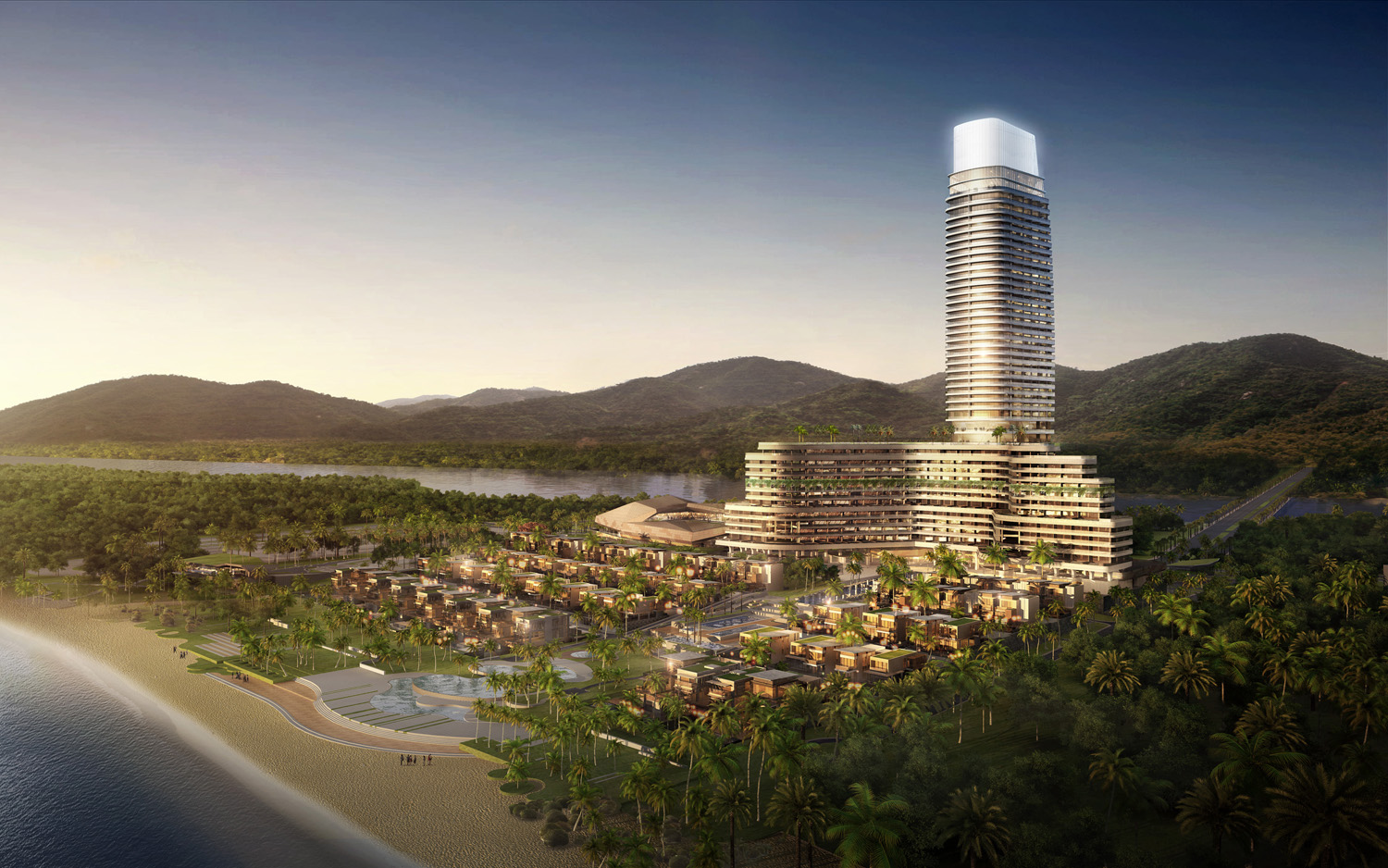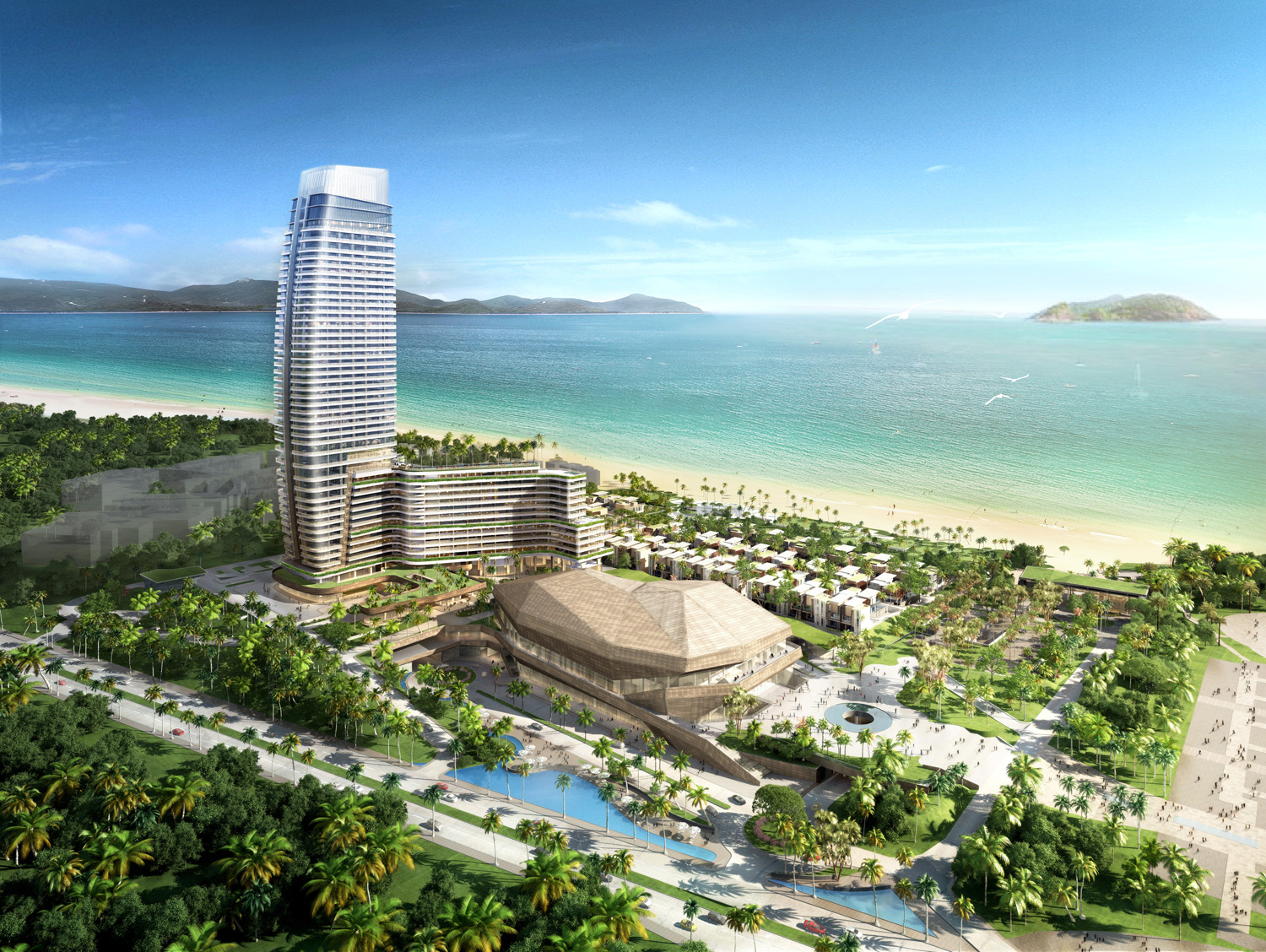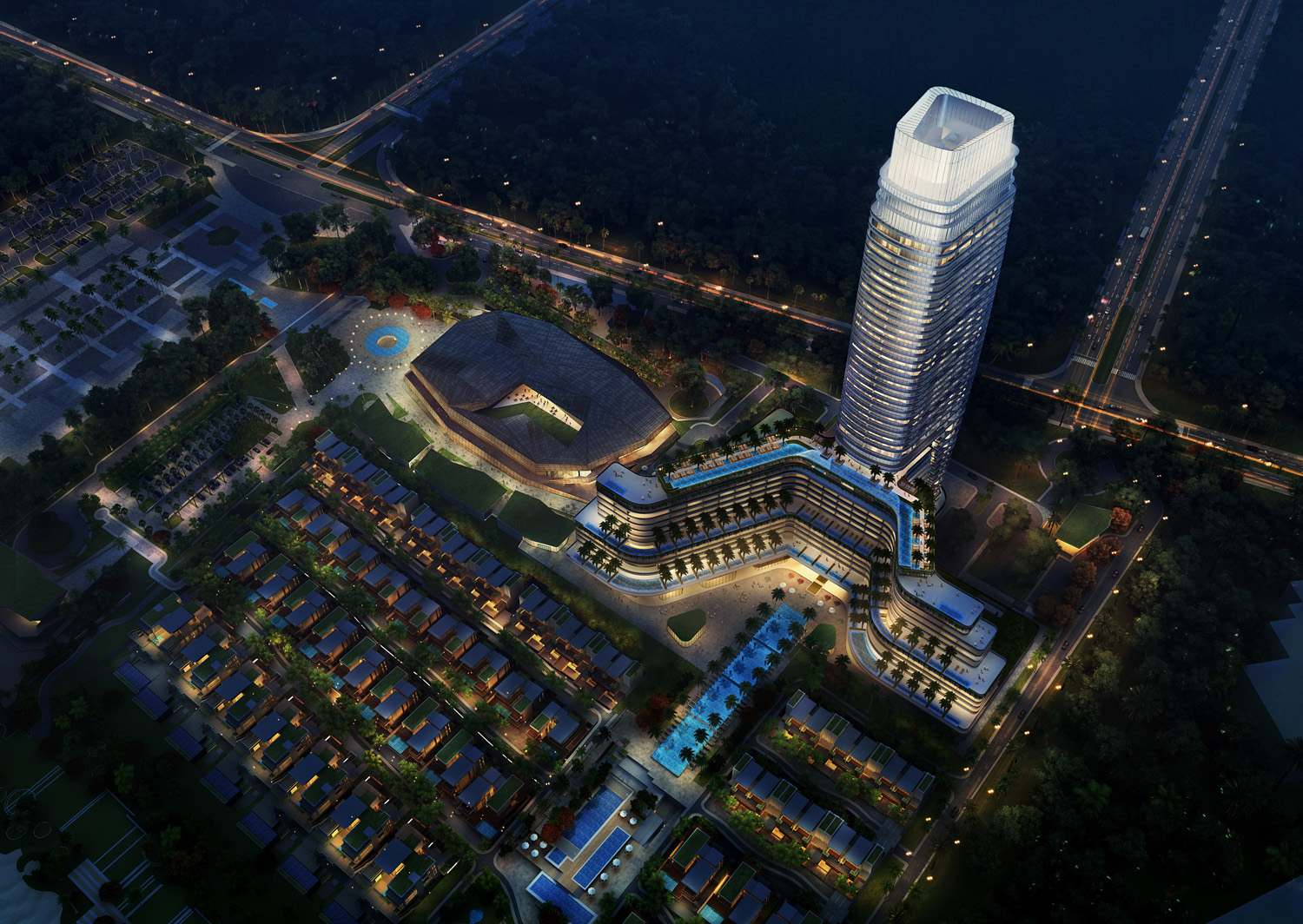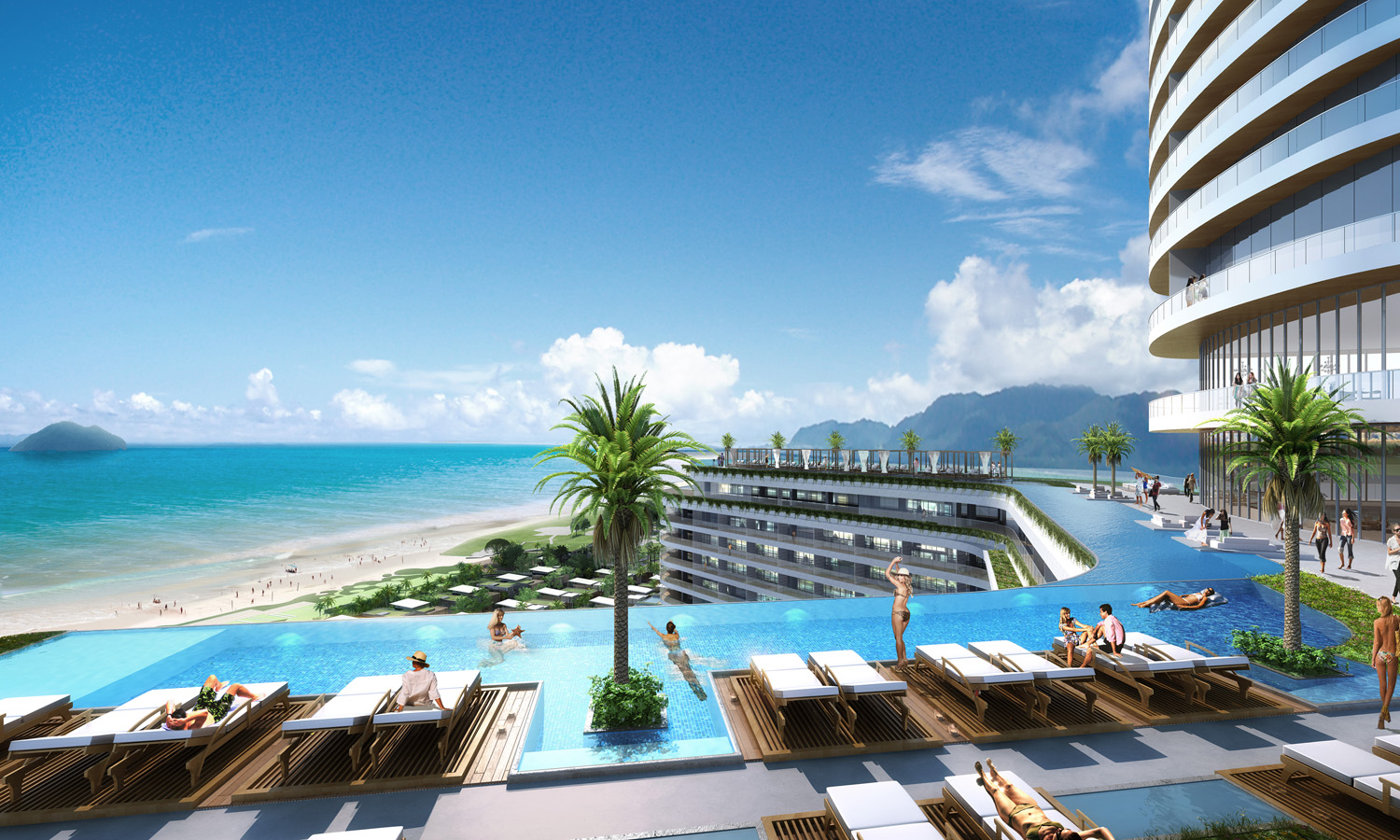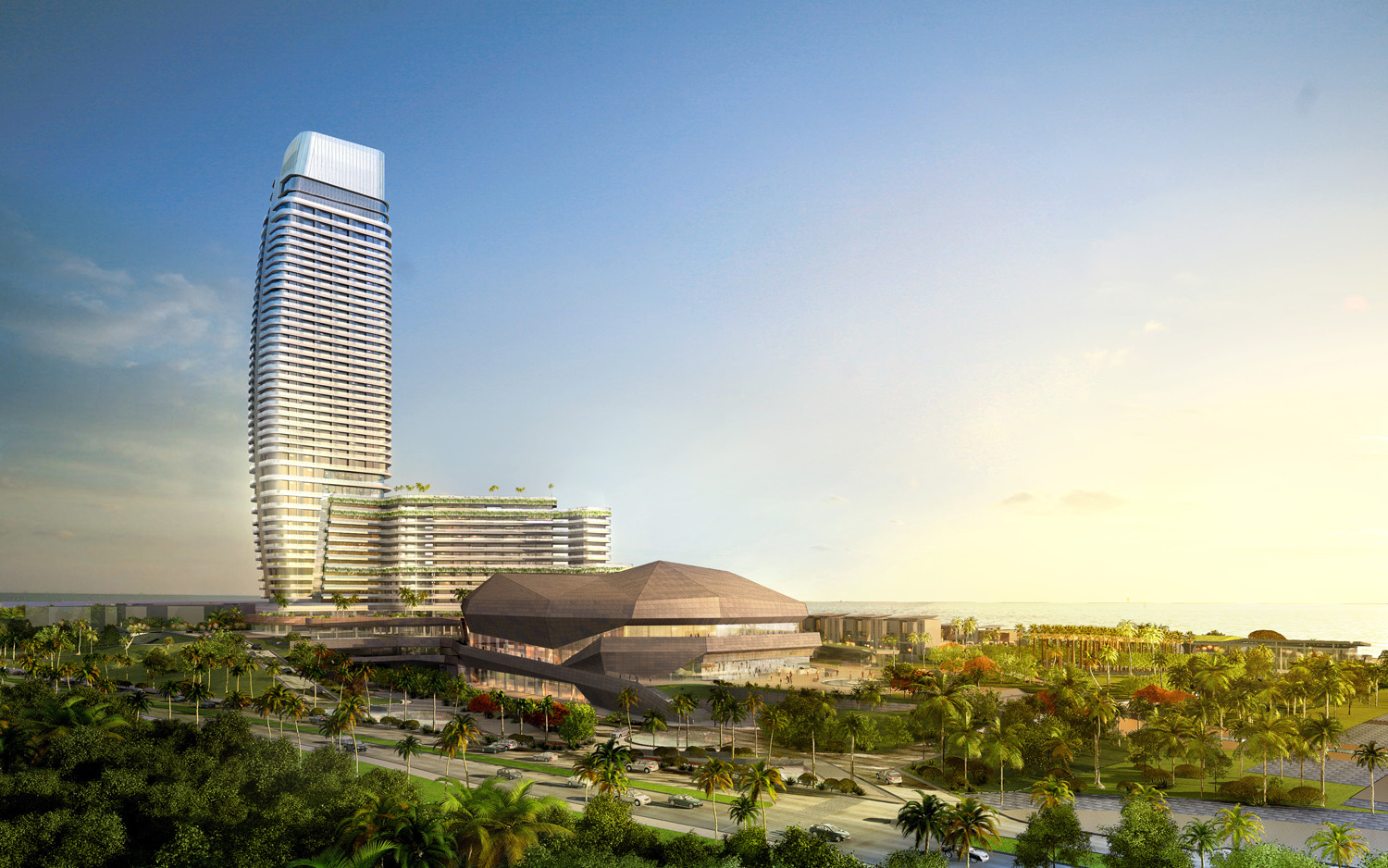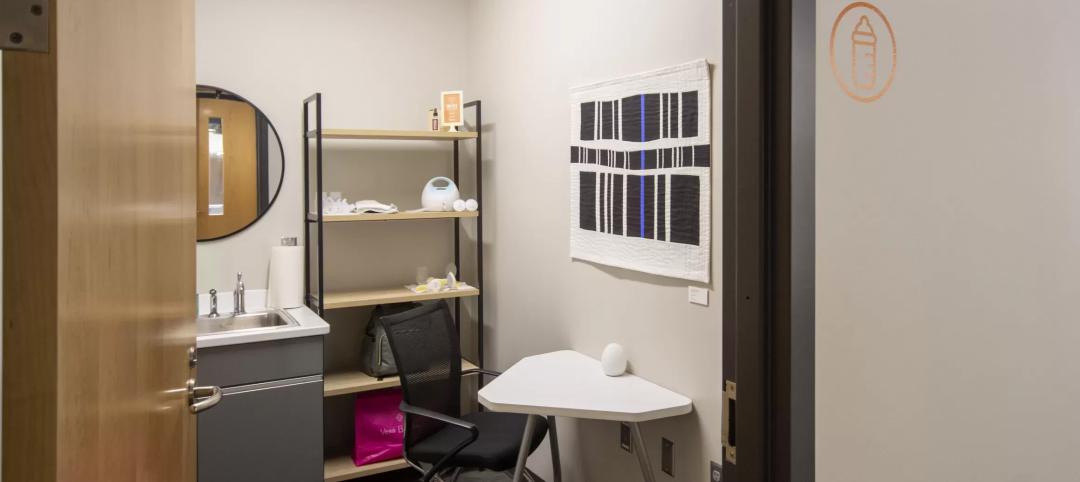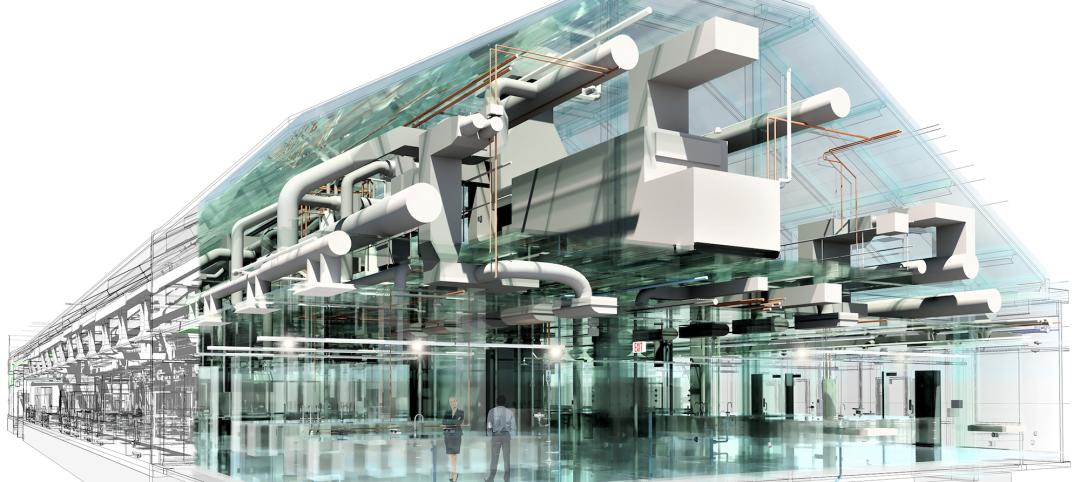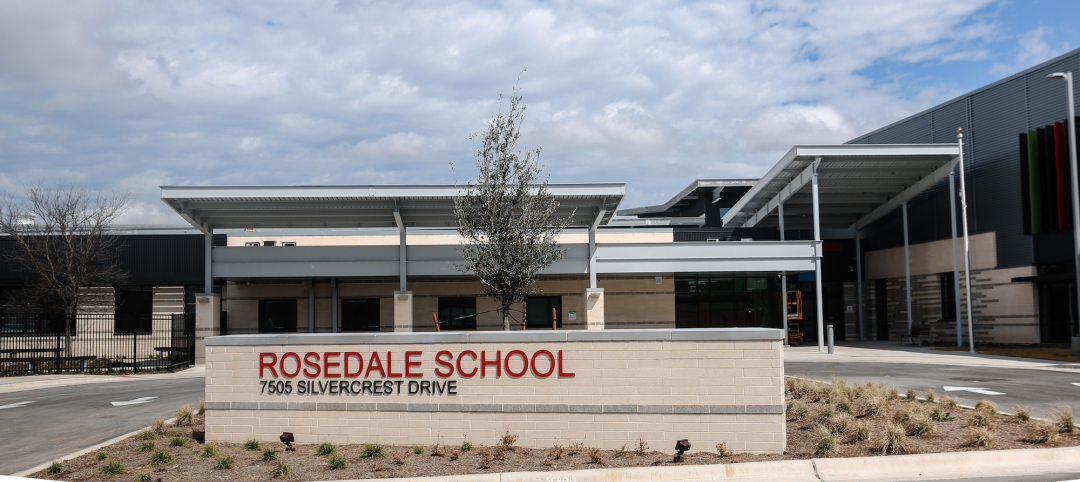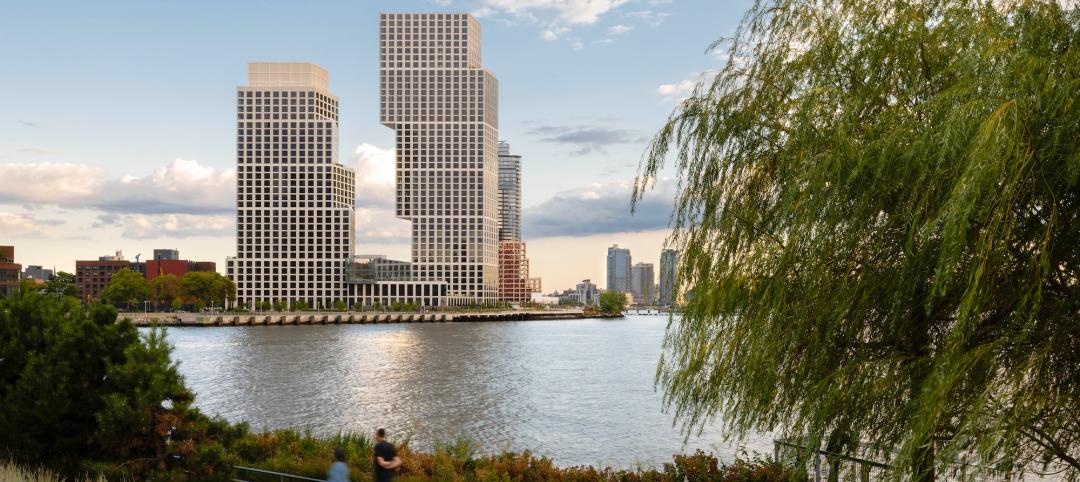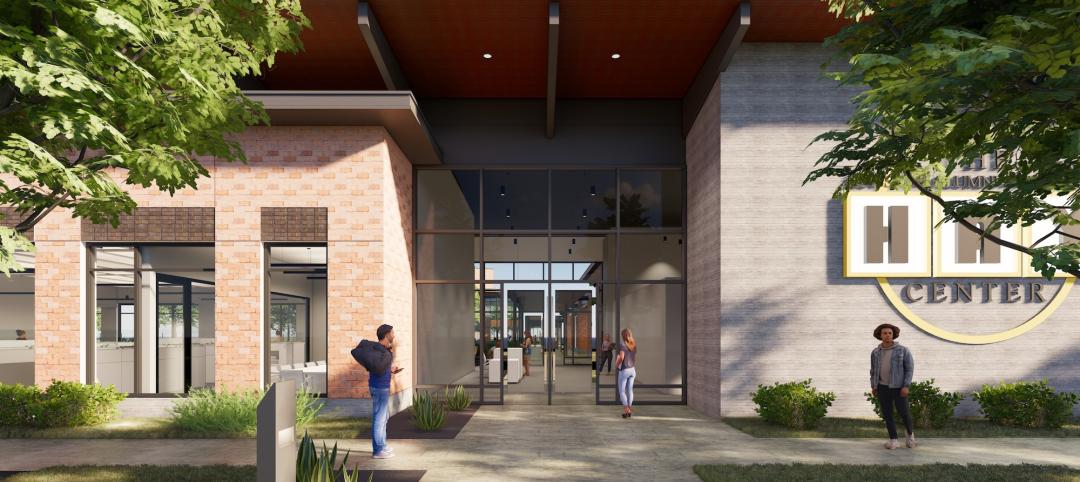Architecture firm Goettsch Partners has unveiled its design for a new resort and meeting destination on China’s Hainan Island in Haitang Bay.
Developed by Poly Real Estate Group, the complex, called Rosewood Sanya and International Finance Forum, features a 729-key resort hotel and serviced apartment tower, a 28,000-sm International Finance Forum convention center, a series of connecting retail buildings, and a modest visitors center.
Located at the southern end of the island in the city of Sanya, the complex focuses on two primary design elements: a lighthouse tower for the hotel and serviced apartments, and a rock form for the convention center.
To be operated by Rosewood Hotels & Resorts, the 45-story, 123,500-sm hotel and serviced apartment tower is distinctive as a resort property, standing as a clear landmark on the waterfront. The International Finance Forum is designed as a premier convention facility, catering to national and international economic and political summits, as well as a variety of other meetings and special events.
Rising from a conceptual outcropping of rock, the 233-meter-tall “lighthouse” hotel and serviced apartment tower will be an iconic symbol of Haitang Bay, with its glowing beacon visible as visitors approach from any direction.
Designed to be a unique resort in the sky, the building is organized vertically, with the arrival sequence, landscape, and incorporation of water and views all considered integral to the guest experience.
The resort is purposely designed to be intimate and exclusive, offering a limited number of rooms—all generously sized—as well as an extensive array of amenities. Hotel guests arrive at a lushly landscaped entry and are immediately whisked up elevators to the sky lobby on level 14 for check-in. This expansive two-story level features unparalleled views and landscaped terraces, along with several amenities, including a sweeping infinity-edge sky pool, lobby lounge, three-meal restaurant, and an executive club.
From the sky lobby, local elevators then escort guests to their rooms on the lower levels. All 229 guest rooms face east and feature ocean views. Each guestroom also includes its own individual terrace or, in some cases, its own plunge pool.
The 500 serviced apartments are positioned on the upper floors of the tower, as well as behind the hotel areas on the lower floors. The top of the tower provides a club amenity level for all apartment units. This multilevel space contains small gathering and larger meeting spaces, along with areas for drinks and entertainment.
The overall complex is scheduled for completion in 2015, with the hotel opening in 2017.
Related Stories
Market Data | Aug 1, 2023
Nonresidential construction spending increases slightly in June
National nonresidential construction spending increased 0.1% in June, according to an Associated Builders and Contractors analysis of data published today by the U.S. Census Bureau. Spending is up 18% over the past 12 months. On a seasonally adjusted annualized basis, nonresidential spending totaled $1.07 trillion in June.
Healthcare Facilities | Aug 1, 2023
Top 10 healthcare design projects for 2023
The HKS-designed Allegheny Health Network Wexford (Pa.) Hospital and Flad Architects' Sarasota Memorial Hospital - Venice (Fla.) highlight 10 projects to win 2023 Healthcare Design Awards from the American Institute of Architects Academy of Architecture for Health.
Office Buildings | Aug 1, 2023
Creating a nurturing environment: The value of a mother’s room in the workplace
Since becoming an architect, Rebecca Martin of Design Collaborative has drawn a mother’s room into numerous projects. But it wasn't until she became a mom that she fully appreciated their importance in the workspace.
Digital Twin | Jul 31, 2023
Creating the foundation for a Digital Twin
Aligning the BIM model with the owner’s asset management system is the crucial first step in creating a Digital Twin. By following these guidelines, organizations can harness the power of Digital Twins to optimize facility management, maintenance planning, and decision-making throughout the building’s lifecycle.
K-12 Schools | Jul 31, 2023
Austin’s new Rosedale School serves students with special needs aged 3 to 22
In Austin, the Rosedale School has opened for students with special needs aged 3 to 22. The new facility features sensory rooms, fully accessible playgrounds and gardens, community meeting spaces, and an on-site clinic. The school serves 100 learners with special needs from across Austin Independent School District (ISD).
MFPRO+ New Projects | Jul 27, 2023
OMA, Beyer Blinder Belle design a pair of sculptural residential towers in Brooklyn
Eagle + West, composed of two sculptural residential towers with complementary shapes, have added 745 rental units to a post-industrial waterfront in Brooklyn, N.Y. Rising from a mixed-use podium on an expansive site, the towers include luxury penthouses on the top floors, numerous market rate rental units, and 30% of units designated for affordable housing.
Affordable Housing | Jul 27, 2023
Houston to soon have 50 new residential units for youth leaving foster care
Houston will soon have 50 new residential units for youth leaving the foster care system and entering adulthood. The Houston Alumni and Youth (HAY) Center has broken ground on its 59,000-sf campus, with completion expected by July 2024. The HAY Center is a nonprofit program of Harris County Resources for Children and Adults and for foster youth ages 14-25 transitioning to adulthood in the Houston community.
Hotel Facilities | Jul 27, 2023
U.S. hotel construction pipeline remains steady with 5,572 projects in the works
The hotel construction pipeline grew incrementally in Q2 2023 as developers and franchise companies push through short-term challenges while envisioning long-term prospects, according to Lodging Econometrics.
Sustainability | Jul 27, 2023
USGBC warns against building energy code preemptions, rollbacks
In a recent editorial, the USGBC cited a growing number of U.S. state legislators who are “aiming to roll back building energy code standards and/or preempt local governments from advancing energy-efficient building codes.”
Resiliency | Jul 27, 2023
'Underground climate change' can damage building foundations, civil infrastructure
A phenomenon known as “underground climate change” can lead to damage of building foundations and civil infrastructure, according to a researcher at Northwestern University. When the ground gets hotter, it can expand and contract, causing foundations to move and sometimes crack.


